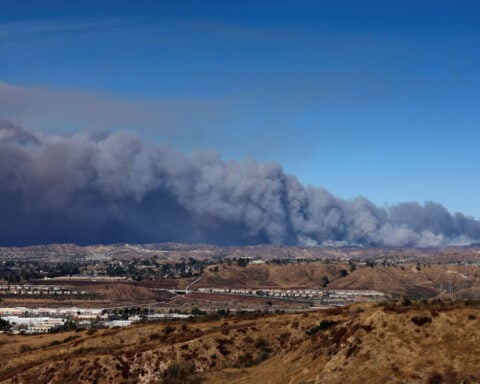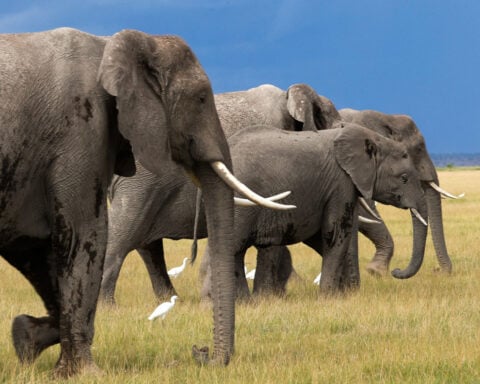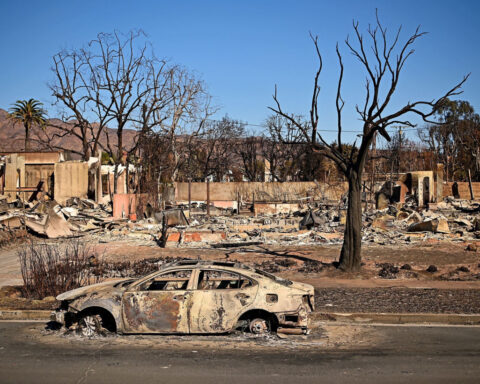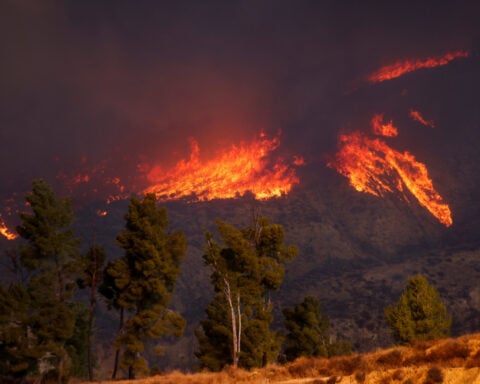A sudden surge of sick and dying sea lions and dolphins washing up on Southern California beaches has experts concerned about a neurotoxin caused by algae blooms along the coast. This outbreak of so-called “red tide” algae has produced a toxin known as domoic acid, which can be fatal to marine mammals and other sea life when ingested.
As of June 27th, the Marine Mammal Care Center in San Pedro has taken in over 60 sick sea lions in just two weeks. John Warner, CEO of the center, said it “started as a trickle” but quickly escalated. Between June 8-14, the Channel Islands Marine & Wildlife Institute reported sightings of over 1,000 ill and dead marine mammals.
Sea lions and other marine mammals are considered sentinel species that can indicate potential environmental threats to humans. While the algae blooms are natural phenomena, experts say human-caused factors like climate change and agricultural runoff may exacerbate them.
The toxins do not directly affect humans, but can concentrate up the food chain when small fish eat the algae and then larger animals eat the fish. People who consume infected shellfish can become ill.
Wildlife rescuers describe the sick sea lions as swaying their heads, foaming at the mouth, experiencing seizures, or simply lying motionless. Last week in Hermosa Beach, volunteers cordoned off a seizing mother sea lion who gave birth on the shore, until rescuers could transport them to the Marine Mammal Care Center.
There, veterinarians work to nurse the animals back to health over 30-60 days through fluids, medication, and rehabilitation, with the goal of releasing them to the wild once recovered. The newborn pup is still nursing from its sick mother as she receives treatment.
This is the sixth such toxic algae outbreak along the California coast since 2002. While the blooms are natural occurrences, some scientists believe human-caused factors like climate change and nitrate runoff may be increasing their frequency and severity.
"It's a combination of factors that have caused these blooms to occur more often and to be more toxic," said Dr. Maddie Stone, a marine ecologist at the California Oceanic Institute. "Higher ocean temperatures from climate change reduce water circulation, allowing algal blooms to linger longer. And nitrates from wastewater and agricultural runoff may be feeding the algae growth."
Sea lion populations themselves could also play a role. Conservation efforts have helped West Coast sea lion numbers rebound significantly since the 1970s after they were hunted and poisoned to near extinction. Their flourishing numbers combined with greater concentrations of algae blooms raise the likelihood of mass casualties.
"Fortunately, California sea lion populations are large enough to withstand these periodic bloom events,” said Dr. Stone. “But for endangered marine mammals, the impacts could be far more devastating and need to be mitigated."
With peak tourism season arriving along California's beaches, visitors may encounter sick marine mammals. Experts urge the public to keep their distance and notify lifeguards, who can then contact wildlife rescue organizations.
"We understand people want to help, but these animals can be unpredictable when ill and need specialized care," said Warner. "By alerting officials, members of the public can help protect both the animals and other beachgoers."
As climate patterns shift and human activities continue to impact coastal ecosystems, scientists expect toxic algae blooms to pose an ongoing threat to sea lions and other marine life. Still, rescue efforts give vulnerable species a fighting chance to survive.
"Thanks to the dedication of wildlife caregivers and researchers, we're able to respond quickly to mass sickness events when they occur and nurse hundreds of sea lions back to health," Warner said. "But the best long-term solution will be addressing the root factors exacerbating these harmful algal blooms."

 What is seditious conspiracy, which is among the most serious crimes Trump pardoned?
What is seditious conspiracy, which is among the most serious crimes Trump pardoned?
 Savannah women brings hope and help with new Maternal Mental Health app
Savannah women brings hope and help with new Maternal Mental Health app
 Amazon to close 7 warehouses in the Canadian province of Quebec and eliminate 1,700 jobs
Amazon to close 7 warehouses in the Canadian province of Quebec and eliminate 1,700 jobs
 House prepares to pass immigrant detention bill that would be Trump's first law to sign
House prepares to pass immigrant detention bill that would be Trump's first law to sign
 Lewis Hamilton says driving a Ferrari F1 car for first time was 'exciting and special'
Lewis Hamilton says driving a Ferrari F1 car for first time was 'exciting and special'
 The head of a federal agency for consumers has packed up his office. But will Trump fire him?
The head of a federal agency for consumers has packed up his office. But will Trump fire him?
 Meagan Good says goodbye to 'Harlem,' hello to her future with Jonathan Majors
Meagan Good says goodbye to 'Harlem,' hello to her future with Jonathan Majors
 K-9's retirement party was everything a dog could want
K-9's retirement party was everything a dog could want
 Why some Instagram users aren’t able to unfollow Trump and JD Vance
Why some Instagram users aren’t able to unfollow Trump and JD Vance
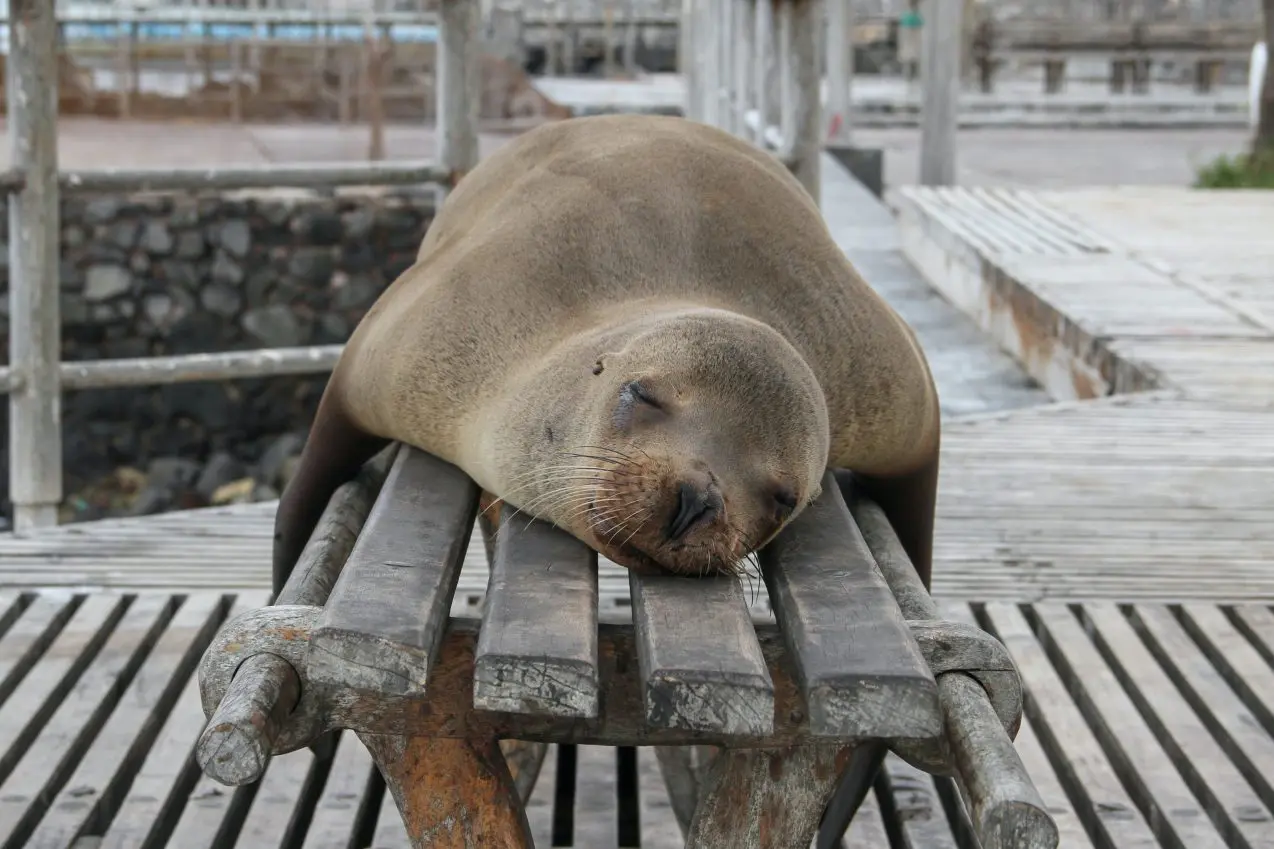 Sick Sea lions in California
Sick Sea lions in California
